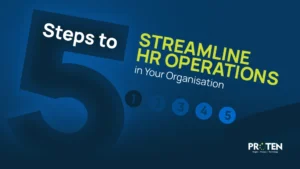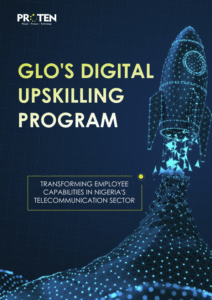Say you’ve been looking for a job for months. You graduated from the university with a degree in a sought-after field about a year or two ago. So far, you’ve applied to so many jobs that you’ve lost count of them.
You even followed our advice on entering the job market. If your frustration from receiving rejection emails could be turned into energy, your house would have been running on constant electricity all this time.
The pressure is on big time, and you’re feeling it. There are bills to be paid (and outings to be made). Every allowance alert you get from your parents is a looming reminder that you must step up and stand independently as soon as possible.
You’re very qualified, by the way.
One day you receive a call from a recruiter, asking for a virtual interview. Finally, a ray of hope! You hop on the interview and answer all the recruiter’s questions flawlessly. The recruiter sounds impressed, and he states so.
Your ecstasy is already at a high when the recruiter asks you a question that lowers it halfway: “Will you be available by Monday next week?”
It’s Thursday afternoon, by the way, again.
“Urgently Hiring” job postings promise quick employment, the chance to start earning immediately, and perhaps a shortcut to financial stability. But is it truly gold or fool’s gold, shimmering under the surface of potential pitfalls?
In this blog, we’re making a case for urgent hires, exploring the reasons behind them, the potential benefits, and the crucial factors to consider before diving headfirst.
The ‘Urgency’ of Urgently Hiring Jobs.
Before we discuss why some jobs hire urgently, you must first understand what an urgent hire job is. Urgently hiring jobs, or immediate hire jobs, are positions that a company needs to fill quickly.
It’s a role where the employer is looking for someone who can start working almost immediately, often within a few days or even the same week. Hiring processes here are usually very fast, and you might find yourself getting a call within a week or two.
But Why the Rush?
Well, urgent hires occur for a variety of reasons, such as:
1. Project deadlines: The company’s team might have realised that they need reinforcements with a specific set of skills to help them fast-track the completion of a project.
2. Rapid growth: The company is growing quickly and needs more people to help it keep up with its rising number of clients.
3. Unexpected vacancies: Perhaps someone just suddenly resigned, especially in the middle of a project. This leaves a gap that quickly needs to be filled.
4. Seasonal Needs: Certain companies may need to hire extra staff during specific times during the year. This is where you might find a lot of contracts.
Whatever the reason is, urgent-hire jobs still gather skepticism, and understandably so. Let’s look at the good and the not-so-good sides of it, and then from there, we’ll strike a balance.
The Good…
Urgently hiring jobs has a good number of advantages. First, you can gain quick entry into the job market. So you don’t have to wait for months on end without any leads. You can use the opportunity of an urgent hire job to break into your career, even if it’s a contract job or an internship. It gives you something to add to your resume.
Additionally, in fast-paced workplaces, you have the opportunity to prove yourself and your abilities, and this breeds the potential for rapid career growth.
Furthermore, you get the chance to take on projects head-on. These projects and their results can be added to your resume.
The Bad and the Ugly…
On the flip side, applying for urgent hire jobs might not exactly be the best idea.
For one, because you were hired as an urgent need, the pressure to perform immediately might be overwhelming. This isn’t to say you shouldn’t perform at all, but if you’re someone who’s looking to learn on the job, especially as an entry-level hire new to the job market, the expectations might seem too unrealistic.
In addition to this, because the team you’re being hired into needs to meet a deadline, they might not exactly have the time to onboard you. So you might be thrown into a deep end without adequate training or support.
And then even more tragically, you can’t exactly be sure of your job security. If something happens and the company you work at has to downsize, they might not have to look too far to know who to lay off.
How to Navigate the Waters.
So, how can you navigate these urgently hiring opportunities without getting burned? Here are some tips:
1. Do Your Research.
Find out if their company culture is a good fit for you. Is their work mode suitable for you? Will you be able to stay for long? You can check through LinkedIn for info such as the median employee tenure, or you could ask one of the people working there what the work culture is like.
Aside from these, it’s important to ask the employer about what they expect from you. What are your responsibilities? What are the KPIs, and how do they measure them?
You can also find out about your team from the recruiter. Find out how supportive they are. Will they be available to support you when needed, or do they expect an expert under the guise of an entry-level employee?
2. Ask the Right Questions.
Aside from questions about company culture and team collaboration, you can also ask your recruiter specific questions about why the role needs to be filled quickly. You could also take time to search for the person formally in the role you are about to occupy.
Ask them what the company culture was like and why they had to leave. Did they japa? Were they poached by competitors, or was the company culture too toxic?
Additionally, you can ask questions about career growth and training opportunities. Do they practice succession planning? And how often are their employees trained on both technical and soft skills? Would they allow breaks for personal training and development for the sake of your career? These are the questions you should be asking.
3. Be Wary of Red Flags.
High compensations sound great, but sometimes it might be too good to be true. The pay being unusually high should make you ask more questions. Like, would they expect you to use your money to pay for your training and health plans? If the pay is so good, then why did the last person leave?
Furthermore, if you’re being pressured into making quick decisions, then you might want to take a step back, especially if the recruiter’s answers to your questions look dodgy and vague.
If the company or recruiter is hesitant to answer your questions, or they seem to downplay your questions as you being paranoid, then they might be shady.
In addition to this, if their hiring process seems too long and complicated for an urgent hire job, they might be trying to bait you. You might want to turn around.
The Bottom Line…
Urgent-hire jobs can be a great opportunity to accelerate your career, but they also come with risks. By approaching these opportunities with caution and doing your due diligence, you can make informed decisions and avoid potential pitfalls.
Remember, it’s okay to be selective. You shouldn’t rush into a job just because it’s an immediate hire. Take your time, ask questions, weigh your options, and choose the right opportunity for you.
Speaking of opportunities, you might miss a lot of them because you didn’t write your resume the right way. Find out how to make your resume SMART enough to stand out with this guide.










